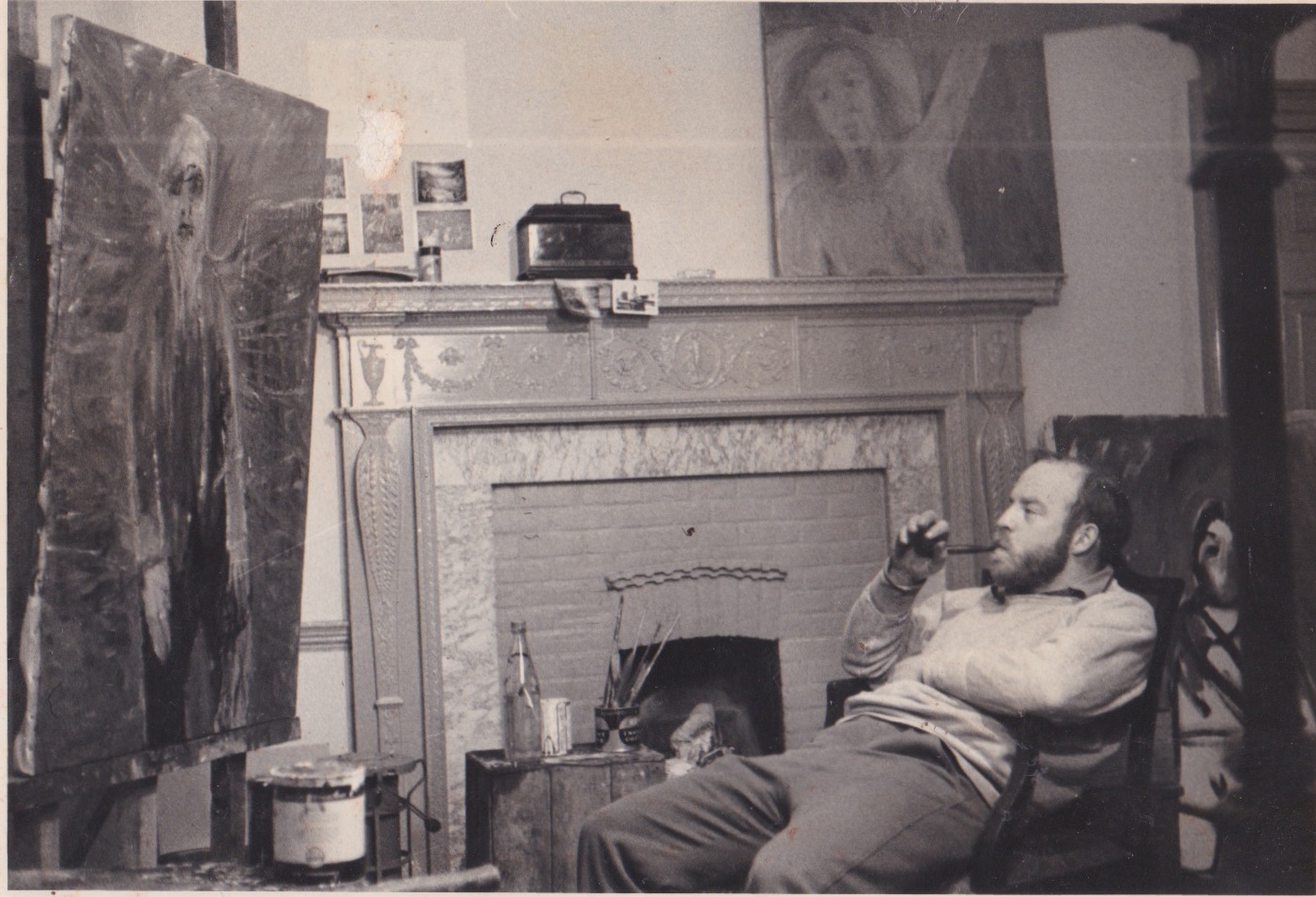My father, the artist W. Lee Savage, will be having a large posthumous show of his artwork in New York City opening on Aug. 5 at the Health and Racquet Club on 23d Street. This occasion prompted me to write this memoir of him in his studio...
My father's studio was a hallowed place. Whether in a downtown apartment, in the country or the suburbs, I remember intense, preoccupied movements in his domain of creative production. I was practically born into his studio. He had been awarded the Guggenheim the year I was born so he didn't have to work a job, and my pram was apparently a fixture in the dining room studio of the drafty English farmhouse. I sometimes think I imprinted the smell of oil paint. In later years, we kids would be lucky enough to hang out, drawing nearby or poring through volumes of books on art, design and film, listening to records of Bach, his friend Gerry Mulligan or the Everly Brothers while he painted at his big easel. We'd gauge his mood by the set of his bearded jaw, in early days often with a pipe between his teeth. Then suddenly he'd yell, "Kids, OUT!" and we'd scramble for the door. As a teen, my dad tolerated my presence for longer stretches and even gave me my first painting lessons. By then he was listening to Elvis Costello and Bob Marley, and I turned him onto Patti Smith, who he respected for her poetry. A lover of literature, my father devoured books of every kind, read T.S Eliot to us at the breakfast table and later introduced me to Roland Barthes and James Joyce. Summers would find him outside painting landscapes that were somehow as psychological as his paintings of people, because whatever the subject, his connection was intimate. And he was always drawing. Black Rapidograph pens and black bound sketchbooks of every size and shape accompanied him everywhere, even in the pocket of his trench coat as he scribbled fellow passengers on the train to meetings with advertising executives. I don't know how many times he drew me, but I have quite a few pen sketches in which I look slightly bored and a little scared to move. Through the decades of our large, complex family's high points and tragedies, my father's art was almost another member of the family, accompanying our personal events with surprising points of view or looming presences. Not a location so much as an externalized state of mind, his studio was a psychic space for play, for the exorcism of demons, and where battles for beauty raged, revealing depths of pain and rejoicing.
My father, W. Lee Savage in his studio, Sussex, England, 1962.

